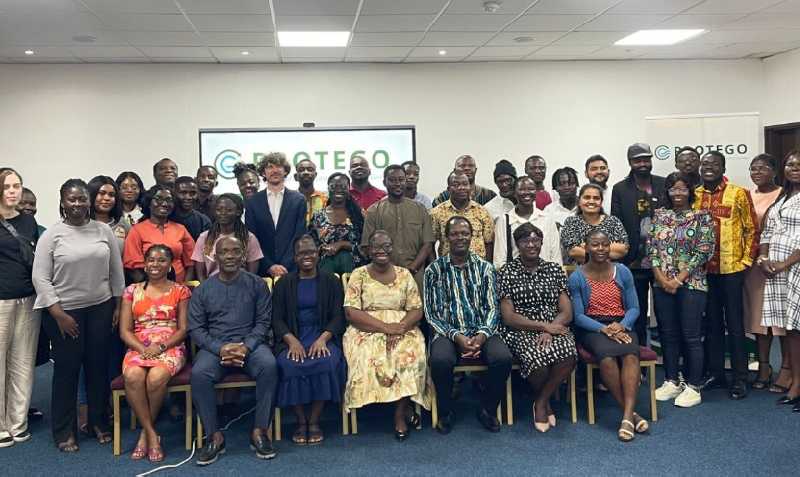Stakeholders in Ghana’s plastics industry have called for urgent policy action, stricter law enforcement, and investment in waste infrastructure to tackle plastic pollution.
They raised concerns about the indiscriminate disposal of plastics—especially single-use items—that continue to clog drains, pollute water bodies, and endanger public health and biodiversity.
The appeal was made at a one-day National Policy Dialogue on Marine Litter Prevention, organised under the PROTEGO project in Accra.
Mr. Clem Ugorji, Regional Project Coordinator of the Prevention of Marine Litter in the Gulf of Guinea (PROTEGO), emphasised that progress against marine litter in Ghana depended heavily on government commitment.
He urged government collaboration with industry players, civil society, development partners, and citizens to address the worsening pollution crisis.
“Leadership is everything, so once the leadership is right and can set the right direction, not just by talk and not just by documentation, but by actual practice, people are most likely to fall in line.
“If the regulations and policies that exist are enforced, and people know that the government is serious, a lot fewer people will risk being on the wrong side of the law,” stated.
Mr. Ugorji stressed that meaningful collaboration between stakeholders required decisive leadership and encouraged the private sector to reduce its reliance on single-use plastics, redesign products, and invest in circular packaging—even at higher initial costs.
He also called for better resourcing of local authorities to enable timely waste collection and segregation.
“Nobody likes to live in a dirty environment but people need to be empowered with the right tools and services to do the right thing,” he added.
Mr. Hope Smith Lomotey, Acting Director of Human Settlement at the Environmental Protection Agency, said the workshop was crucial amid the global marine plastic crisis.
He noted that as a coastal nation with rich marine biodiversity and ocean-linked livelihoods, Ghana must take urgent and coordinated action to reduce plastic waste and protect its marine ecosystems.
Mr. Lomotey reaffirmed government commitment to environmental sustainability through key frameworks, including the National Plastic Management Policy, National Plastic Waste Management Strategy and Roadmap, Extended Producer Responsibility, Waste Segregation Model Framework, and the Ghana Plastic Action Partnership (GPAP).
“Through innovation, public-private partnerships, community engagement, and international cooperation, we are advancing solutions to reduce plastic waste generation, promote recycling, and ensure responsible consumption and production practices,” he added.
